 Petzlover
Petzlover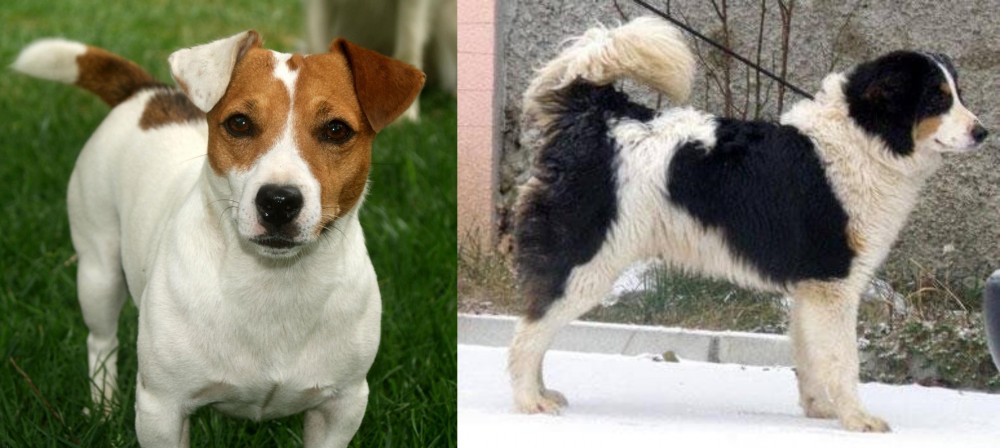 Irish Jack Russell is originated from United States but Tornjak is originated from Croatia. Irish Jack Russell may grow 37 cm / 14 inches shorter than Tornjak. Irish Jack Russell may weigh 42 kg / 92 pounds lesser than Tornjak. Irish Jack Russell may live 4 years more than Tornjak. Both Irish Jack Russell and Tornjak has almost same litter size. Irish Jack Russell requires Low Maintenance. But Tornjak requires Moderate Maintenance
Irish Jack Russell is originated from United States but Tornjak is originated from Croatia. Irish Jack Russell may grow 37 cm / 14 inches shorter than Tornjak. Irish Jack Russell may weigh 42 kg / 92 pounds lesser than Tornjak. Irish Jack Russell may live 4 years more than Tornjak. Both Irish Jack Russell and Tornjak has almost same litter size. Irish Jack Russell requires Low Maintenance. But Tornjak requires Moderate Maintenance
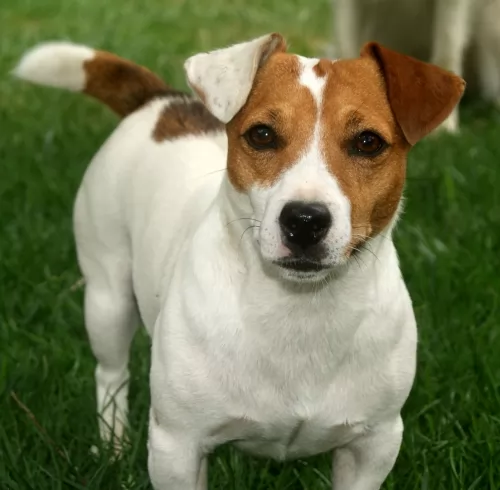 Originating in the United States of America, the Irish Jack Russell, also known as Short Jack Russells, was bred to bring about a calmer temperament and to also have a dog with shorter legs.
Originating in the United States of America, the Irish Jack Russell, also known as Short Jack Russells, was bred to bring about a calmer temperament and to also have a dog with shorter legs.
Always a working dog, breeders of the Irish Jack Russell wanted to create a dog with less of a hunting instinct in him and have a dog which would be more companionable.
These Irish Jack Russells look much like your regular Jack Russell but are more of a companion dog than a hunting dog. The Irish Jack Russell doesn’t adhere to any existing Jack Russell breed standard and isn't really recognized at major dog clubs and kennels. The truth of the whole matter is that there are different kinds of Jack Russells and different names given to them to differentiate between the taller Jack Russell and the short legged one. The shorter Jack Russell Terriers are known by many names such as Irish Jack Russell and Shorty Jack Russells.
 Known also as the Bosnian and Herzegovinian, the Tornjak dog hails from Croatia and Bosnia and is a large mountain sheepdog.
Known also as the Bosnian and Herzegovinian, the Tornjak dog hails from Croatia and Bosnia and is a large mountain sheepdog.
It is thought that this protector of livestock dog has been bred from the Tibetan Mastiff. He is an ancient breed because there are records of its existence coming as far back as the 11th century.
As a working dog, his role of guarding sheep became less and the dog’s numbers diminished. It was during the 1970s that the breed was revived.
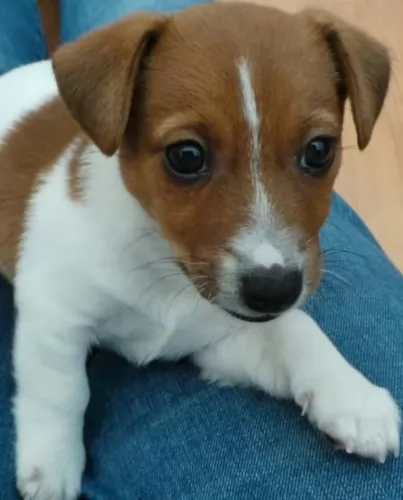 Irish Jack Russells are small dogs standing at roughly 18 to 35cm and weighing in the region of 5 to 8kg for both males and females.
Irish Jack Russells are small dogs standing at roughly 18 to 35cm and weighing in the region of 5 to 8kg for both males and females.
He looks much like your regular Jack Russell but he has shorter legs, and where the regular Jack Russell has an essentially white coat with orange-tan patches, the Irish Jack Russell can be solid tan or other color variations such as red, brindle, black and tan.
The coat can be short or fairly long and coarse. The Irish Jack Russell is a sturdy, compact dog with a flat skull, brown eyes and ears which are semi-erect, semi-floppy. He has a bright, alert, intelligent look on his face. The tail is set fairly high and has always been docked but these days it is inclined to be left long, taking away from the dog’s nice compact look.
The Irish Jack Russell is perhaps more placid than the regular Jack Russell and that is why he can adapt to life in the city or in the country. They’re intelligent dogs and therefore easy to train and have socialized.
Even though he is a small dog, training and socialization is important as he is a feisty, stubborn, know-it-all little dog. These are dogs which can become possessive of their owner and they can become quite aggressive when protecting their family. He is a highly trainable dog but it is important to have him trained as he tends to be aggressive with other dogs.
He is busy, active, happy and inquisitive and will require regular exercise to prevent him becoming restless and destructive. He has been a working terrier and he always wants to be busy.
 This is a large, strong dog, standing at between 58 and 72cm in height and weighing between 28 and 50kg. He has a long, thick coat which has always protected him from the harsh winters of the countries he comes from.
This is a large, strong dog, standing at between 58 and 72cm in height and weighing between 28 and 50kg. He has a long, thick coat which has always protected him from the harsh winters of the countries he comes from.
Common colors for the coat are mainly white with tan, brown, grey or black markings.
The Tornjak is a beautiful dog and also calm by nature, well balanced, intelligent and self- confident. His calm nature doesn’t stop him from being a good watchdog though as he is also alert and brave.
He is more than willing to please his owner and is able to be trained and socialized with ease.
He is a social dog and just loves spending time with hs human family. Therefore efforts should be made not to leave him alone for long periods of time. He forms strong bonds with them and is loving and devoted. Because of his size and energy he won’t suit life in the city on a small property but will be better suited to life in the countryside.
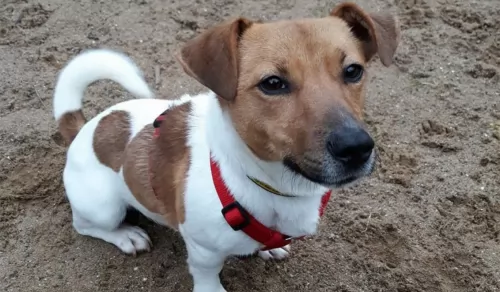 The Irish Jack Russell is a self-confident, energetic dog who will like nothing more than to be involved with everything you’re doing. The busier he is the better, and because he has strong hunting instincts you may find him digging in your garden for rats.
The Irish Jack Russell is a self-confident, energetic dog who will like nothing more than to be involved with everything you’re doing. The busier he is the better, and because he has strong hunting instincts you may find him digging in your garden for rats.
Have him trained and socialized if you want to avoid certain problems with him and remember to exercise him and provide him with the attention he craves.
He is a social dog and will pine away if you just leave him to get by on his own. Make sure that he becomes every bit as part of your family as everyone else and he promises to make you a loyal, devoted companion.
 With their human family, they become attached and loyal, not wanting to be separated from anyone for too long. Give him the care this beautiful dog deserves and he'll make you a splendid pet and companion.
With their human family, they become attached and loyal, not wanting to be separated from anyone for too long. Give him the care this beautiful dog deserves and he'll make you a splendid pet and companion.
 Your Irish Jack Russell is a dog that doesn’t battle with too many health issues, but nonetheless you still need to watch out for common health problems.
Your Irish Jack Russell is a dog that doesn’t battle with too many health issues, but nonetheless you still need to watch out for common health problems.
Jack Russell terriers are generally a healthy breed that can live up to 14 years of age, but still every dog is prone to the more common dog problems such as hip dysplasia, bloat, ear infections and dental disease among others.
If your Irish Jack Russell is in pain, he is lethargic and sick, don’t delay – take him to the vet right away.
 Most dogs face one or two health challenges in their lives, but most Tornjaks are healthy and won’t easily get sick.
Most dogs face one or two health challenges in their lives, but most Tornjaks are healthy and won’t easily get sick.
They’re large dogs so they typically don’t live as long as small dogs. They can live to be between 10 and 12 years of age.
This is a dislocation of the kneecap, caused by an injury or it can be present at birth. It can cause pain and a limp.
This is a joint condition that is more often seen in large dogs. The ill-fitting joint rubs and chafes, and osteoarthritis and more pain is the result.
You will have to speak to your vet about relieving the pain for your dog and making him more comfortable. Don’t think hip dysplasia is something only old dogs get – it can develop with young dogs – even puppies. Your veterinarian will examine your pet and suggest different medical and surgical options.
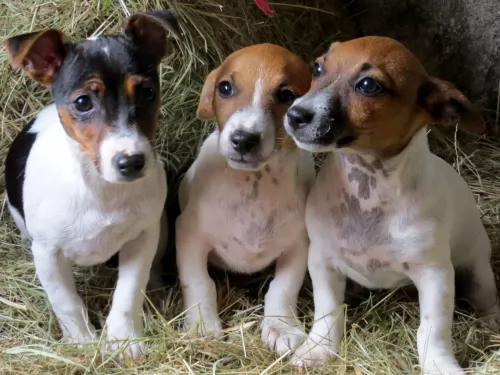 The Irish Jack Russell is an average shedder with his short or longish coat which is easy to groom, requiring a brush once or twice a week. His nails grow quickly too and they can get caught on something and cause him damage. Trim your pet’s nails to prevent this.
The Irish Jack Russell is an average shedder with his short or longish coat which is easy to groom, requiring a brush once or twice a week. His nails grow quickly too and they can get caught on something and cause him damage. Trim your pet’s nails to prevent this.
Feed your Irish Jack Russell good quality dog food each day. If you feed him commercially manufactured dog food, be certain to check the feeding instructions on the packaging.
He is a small dog, and overfeeding can be just as bad as under-feeding. It’s never a good idea to just go on and on feeding your pet dry or wet kibble day after day. Add in some cooked chicken, rice, pasta and vegetables as a treat and to also provide some variety for him.
Also a little bit of raw meat occasionally can do him the world of good and you’ll see the appreciation in his bright eyes and wagging tail.
 The Tornjak needs exercise every day to keep him fit and happy. He will love it when you take down his leash for his daily walk. He is a social dog and will want to be involved with all your activities. He gets on well with other dogs too.
The Tornjak needs exercise every day to keep him fit and happy. He will love it when you take down his leash for his daily walk. He is a social dog and will want to be involved with all your activities. He gets on well with other dogs too.
The Tornjak will require quite a bit of grooming because the hair is fairly long and it sheds. Some dog owners have the hair cut by a professional groomer. Regular brushing certainly helps to reduce lots of dog hair flying around.
The insides of his ears need to be checked for signs of redness as well as the eyes. The eyes should be checked for pus and redness. Occasional dog nail trimming will also be required.
Provide your Tornjak with top quality food. If you feed him with one of the commercially manufactured foods, make sure it is one of the better brands. The inferior brands are filled with bad ingredients that can actually make a dog sick.
Try to include some home-made food which can be added to the dry kibble twice a week as a treat. Avoid human foods such as chocolates, grapes, onions, peanuts and chips as these can give him stomach pain and more vet bills for you.
Stick to wholesome, simple foods such as boiled chicken, brown rice or pasta and spinach, sweet potatoes and carrots. Your Tornjak will love it and it will ensure he has bright eyes ad a wagging tail. Never leave him without a constant supply of fresh, cool water.